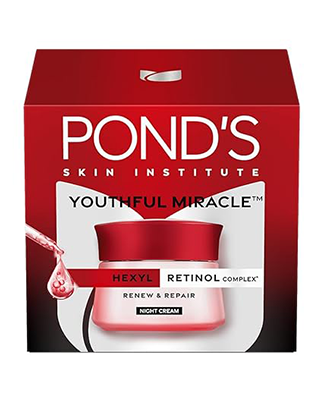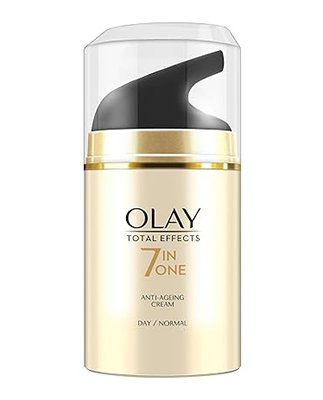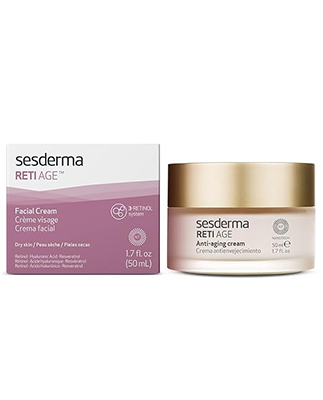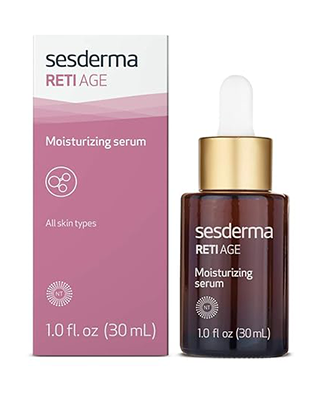Anti-Aging Creams in India
Discover the best anti-aging creams in India that help reduce wrinkles, fine lines, and other visible signs of ageing. Whether you’re in your 30s, 40s, or beyond, the right product can make all the difference.
How Do Anti-Ageing Creams Work?
Anti-ageing creams use a blend of powerful ingredients to target visible signs of skin ageing in a few key steps:
- Antioxidants like vitamins C, E, and B3 neutralize free radicals, helping to protect skin cells from environmental damage and slow collagen breakdown.
- Cell regulators such as retinoids and peptides stimulate collagen and elastin production, which firms the skin and reduces wrinkles.
- Exfoliating acids (like AHAs and BHAs) gently remove dead skin cells, speeding up cell renewal for a smoother, brighter complexion.
- Hydrating agents (such as hyaluronic acid) boost moisture levels, plumping the skin and improving elasticity.
- Barrier-repair ingredients help restore the skin’s protective layer, enhancing resilience and preventing moisture loss.
What is the Best Anti-Aging Cream?
Top dermatologist picks for 2025 include:
- Neutrogena Rapid Wrinkle Repair Daily Face Moisturizer with SPF 30: Contains retinol, vitamin C, and SPF. Proven to reduce dark spots, firm skin, and even tone in just eight weeks. Suitable for most skin types except sensitive.
- Olay Regenerist Micro-Sculpting Cream with SPF 30: Packed with peptides, niacinamide, and hyaluronic acid for hydration, brightening, and smoothing fine lines. Lightweight and ideal for daily use.
- Skinbetter AlphaRet Overnight Cream: Recommended for its patented growth factor technology, peptides, antioxidants, and alpha hydroxy acids. Delivers a glow and helps stimulate collagen for all skin types.
- L’Oréal Paris RevitaLift Triple Power Moisturizer with SPF 30: Combines pro-retinol, vitamin C, and hyaluronic acid to firm, brighten, and smooth wrinkles, plus broad-spectrum sun protection.
Do Aging Creams Really Work?
Anti-aging creams can visibly improve:
- Fine lines and wrinkles
- Skin firmness and elasticity
- Dark spots and uneven tone
However, they cannot completely erase signs of aging. Consistency is key—most users see noticeable improvements after 4–12 weeks of daily use.
Best Anti-Aging Cream for 30s
In your 30s, focus on prevention and hydration:
- Look for creams with antioxidants (like vitamin C), lightweight moisturizers, and SPF.
- Products with retinol or peptides help maintain collagen and elasticity.
Examples: Olay Regenerist Micro-Sculpting Cream, L’Oréal Paris RevitaLift Triple Power Moisturizer.
Best Anti-Aging Cream for 40s
In your 40s, target firmness, deeper wrinkles, and hydration:
- Choose richer formulas with retinol, hyaluronic acid, and collagen boosters.
- Consider creams designed for mature skin, like L’Oréal Paris Collagen Moisture Filler or Skinbetter AlphaRet Overnight Cream.
- SPF remains essential for daily protection.
How to Choose the Best Cream for You
- Identify your primary concern: Wrinkles, dullness, sagging, or dark spots.
- Match to your skin type: Dry, oily, combination, or sensitive.
- Look for proven ingredients: Retinol, peptides, vitamin C, hyaluronic acid, and SPF.
Best Anti-Aging Creams in India
| Product Name | Feature | Skin Type | Price (Approx.) |
|---|---|---|---|
| Olay Regenerist Micro-Sculpting Cream | Hydrating hyaluronic acid, rejuvenating amino peptides | All skin types | ₹1,499 |
| L’Oreal Paris Revitalift Laser X3 Night Cream | Pro-xylane, hyaluronic acid, targets wrinkles and uneven skin tone | All skin types | ₹1,499 |
| Forest Essentials Advanced Eternal Youth Formula | Ayurvedic ingredients (date & litchi) boost collagen, replenish moisture | All skin types | ₹3,950 |
| Pond’s Age Miracle Wrinkle Corrector | Retinol-C complex, vitamins B3 & E, SPF 18 PA++, antioxidant-rich | All skin types | ₹239 |
| Blue Nectar Ayurvedic Anti-Aging Cream | 14 Ayurvedic herbs, plant-based Vitamin C & E, floral aroma, deeply nourishes | All skin types | ₹975 |
| Lotus Herbals YouthRx Anti-Aging Transforming Crème | Oil-free gel texture, controls pimples, enhances glow, SPF 25 | Oily/Combination | ₹581 |
| Minimalist 2% Retinoid Anti-Aging Night Cream | Non-comedogenic, unscented, cruelty-free, 2% retinoid | All skin types | ₹629 |
| Olay Total Effects Day Cream | Anti-inflammatory, skin nourishment, broad-spectrum anti-aging | All skin types | ₹849 |
Recommendations Based on Skin Type
Dry skin: Look for creams with hyaluronic acid and nourishing oils.
Oily or acne-prone skin: Lightweight, non-comedogenic formulas with retinol are ideal.
Sensitive skin: Go for fragrance-free, soothing creams with ingredients like niacinamide or aloe.
Frequently Asked Questions
Q. Are anti-aging creams safe during pregnancy?
Most anti-aging creams are not considered safe during pregnancy if they contain certain ingredients. Retinoids (retinol, tretinoin) and hydroquinone are commonly found in anti-aging products but should be avoided, as they have been linked to birth defects and can be absorbed systemically.
Salicylic acid in high concentrations and some chemical sunscreens (like oxybenzone) should also be avoided. Ingredients like hyaluronic acid and vitamin C are generally considered safe. Always consult your doctor or dermatologist before using any anti-aging products during pregnancy.
Q. What are the best anti-aging creams?
The best anti-aging creams often contain ingredients like retinoids, peptides, hyaluronic acid, niacinamide, antioxidants (vitamin C, E), and sunscreen. However, the “best” product depends on your skin type, concerns, and any sensitivities.
For pregnancy-safe options, look for creams with hyaluronic acid, peptides, and vitamin C—and avoid retinoids and hydroquinone. Brands like La Roche-Posay, CeraVe, Neutrogena, Biossance, and BeautyCounter offer highly rated options.
Q. What are the side effects of anti-aging cream?
Potential side effects include:
- Irritation (redness, peeling, dryness), especially with retinoids or acids
- Allergic reactions (rash, itching, swelling)
- Photosensitivity (increased risk of sunburn, especially with retinoids and AHAs/BHAs)
- Breakouts or worsening of acne in some individuals
Always patch-test new products and introduce them gradually.
Q. What are the best eye creams for anti-aging?
Top anti-aging eye creams typically contain peptides, hyaluronic acid, niacinamide, antioxidants, and caffeine. Products without retinoids are preferred during pregnancy or for sensitive skin. Look for trusted brands that focus on gentle, hydrating formulas.
Q. What are the key ingredients in anti-aging creams?
Common ingredients include:
- Retinoids (retinol, tretinoin): Boost collagen, reduce wrinkles (not safe during pregnancy)
- Peptides: Support skin structure
- Hyaluronic acid: Hydrates and plumps skin
- Antioxidants (vitamin C, E): Protect against free radicals
- Alpha hydroxy acids (AHAs): Exfoliate and brighten skin (use with caution)
- Niacinamide: Improves skin tone and texture
Q. Can anti-aging creams damage young skin?
Using potent anti-aging creams (especially those with retinoids or strong acids) on young or sensitive skin can cause irritation, dryness, and disrupt the skin barrier. Overuse may lead to increased sensitivity or breakouts. Gentle moisturizers and sunscreen are usually sufficient for young skin.
Q. Can young people use anti-aging cream?
Yes, but it’s generally unnecessary to use strong anti-aging ingredients at a young age. Sunscreen and moisturizer are the most important steps for prevention. If you choose to use anti-aging products, opt for gentle formulations and avoid overuse.
Q. Can you use anti-aging cream when young?
You can, but focus on prevention rather than correction. Daily sunscreen is the most effective anti-aging step. If you use anti-aging creams, choose those with mild ingredients like antioxidants or hyaluronic acid rather than retinoids or acids.
Q. What is the right age for using anti-aging cream?
There’s no strict age, but many dermatologists recommend starting a basic anti-aging routine (sunscreen, antioxidants, moisturizer) in your mid-20s to early 30s. Stronger actives like retinoids are often introduced in the late 20s or 30s, depending on skin needs and tolerance.
Q. When should anti-aging cream be used?
- Prevention: Start with sunscreen and antioxidants in your 20s.
- Correction: Add retinoids, peptides, or acids in your 30s or when you notice early signs of aging (fine lines, uneven tone).
- Pregnancy: Avoid retinoids and hydroquinone; use gentle, hydrating, and antioxidant-rich products instead.












